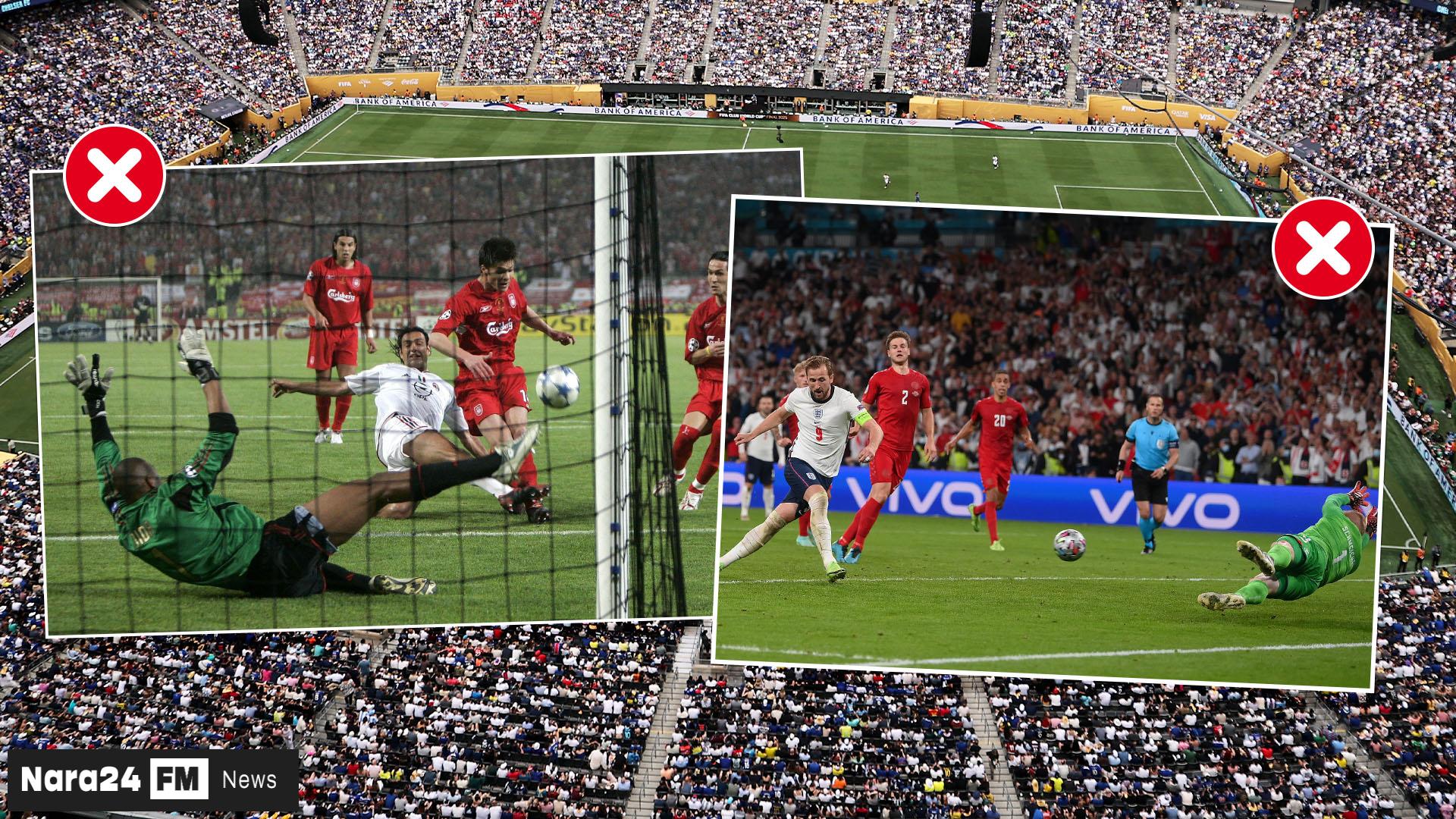Revolutionary Rule Changes in Football
Football could witness one of its most significant rule overhauls in over a century, with penalty rebounds potentially being outlawed and VAR interventions expanded to include second yellow cards and corner decisions. These changes, aimed at improving fairness and reducing controversies, are being actively discussed by the International FA Board (Ifab) and could be implemented in time for the 2026 World Cup.
End of Penalty Rebounds?
Under the proposed rules, missed penalties would result in a goal-kick for the opposing team, eliminating the chance for attackers to score from rebounds. This change would turn penalties into a single-shot opportunity, similar to hockey’s penalty stroke rules. Proponents argue that this would remove the unfair advantage attackers currently enjoy, as goalkeepers are required to keep one foot on or behind the line during the kick.
Iconic moments like Harry Kane’s rebound goal against Denmark in the Euro 2020 semi-final or Xabi Alonso’s equalizer in Liverpool’s 2005 Champions League final comeback would no longer be possible under these new rules. Critics, however, fear the move could strip the game of some of its most dramatic moments.
VAR Expansion: Second Yellows and Corners
In addition to penalty changes, Ifab is considering expanding VAR’s scope to intervene in second yellow card decisions and corner rulings. This would allow video officials to overturn “unfair” dismissals and correct “clear errors” made by on-field referees. The aim is to ensure greater accuracy in crucial match decisions while minimizing delays caused by extended VAR checks.
Discussions on these potential changes began in late 2023 and gained momentum during the Club World Cup in the USA. Ifab has shown a willingness to implement bold reforms in recent years, aiming to make the game more engaging and fair for players and fans alike.
Timeline and Implementation
For these changes to take effect by the 2026 World Cup, they must be approved by Ifab by the end of February 2026. While the timeline is tight, there is growing support for the proposed amendments among football’s governing bodies.
As the sport continues to evolve, these potential rule changes could reshape how football is played and watched, sparking debates among fans, players, and officials worldwide.








Comments (0)
Leave a Comment
Be the first to comment on this article!